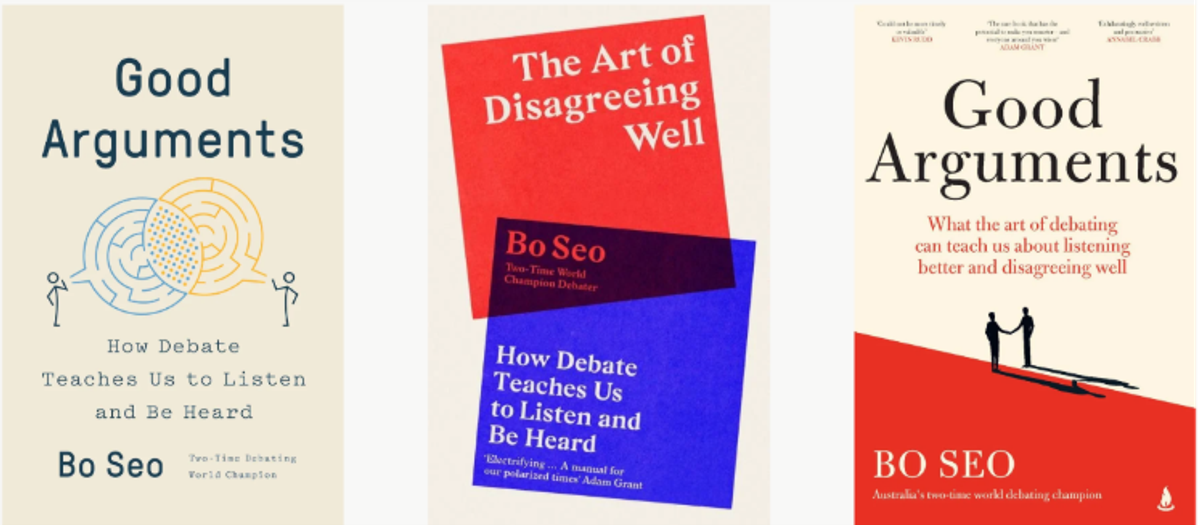Co-Curricular

Welcome to Term 4
I hope many of you enjoyed a restful break. No doubt plenty of families took advantage of the warmer weather, heading overseas or up or down the coast, while others spent time at home to recharge after a long and eventful Term 3.
I was able to get away to the Gold Coast to visit extended family. Our travel strategy for this trip is always the same: my wife and daughters fly, and I drive the luggage-packed car. They love it – and so do I. Nine hours of argument-free motorway-cruising, catching up on audiobooks and podcasts, is time well spent a couple of times a year.
With everything going on socially, culturally and politically here and abroad, I listened to a range of intense debates and interviews across different podcasts. At times, it was hard to work out what was being argued as people talked over, around and through each other.
Amid the symphony of voices and opinions during the drive north, I was reminded of a book I read (well, listened to) a few years ago. It was written by a fellow alumnus of my old school, and that connection – along with its reasonably intriguing title – was enough to make me curious about what he had to say.
The book is Good Arguments, authored by Bo Seo. Ironically, its title varies depending on where you buy it:
US and Canada: Good Arguments: How Debate Teaches Us to Listen and Be Heard
Australia and New Zealand: Good Arguments: What the Art of Debating Can Teach Us About Listening Better and Disagreeing Well
UK: The Art of Disagreeing Well: How Debate Teaches Us to Listen and Be Heard
Other regions: Good Arguments: The Power of Debate to Reduce Conflict and Reach Better Outcomes
There may be even more versions, as the book has been published in ten languages. I can’t help but wonder how many arguments were had – and settled – during that process, or whether the publishers simply got their way.
Bo is a South Korean–born Australian whose family moved here when he was eight. When I first listened to the book, he was studying for a Juris Doctor at Harvard University after a stint in financial journalism. He later returned to our old school, where I had the chance to see him speak about debate and public speaking while promoting the book.
Good Arguments is genuinely engaging as Bo traces his journey from school debating through to the World Championships, and later coaching both the Australian and Harvard University teams. Knowing many of the teachers he mentions made it all the more vivid – and rubbed salt into the wound of my own brief and somewhat humiliating debating career. It lasted all of 30 minutes as the silent fourth speaker on the Year 5 house debate team, with my teammates alternating between confusion and despair as they tried to interpret my nonsensical ‘rebuttals.’
Without giving too much away, one of the key ideas Bo presents has stayed with me: identify the real disagreement. Many arguments become tangled because we mix up facts, values, and actions. He encourages us to recognise which type of disagreement we’re actually having and to isolate it before responding.
Another theme that resonated was listening with humility. Good arguers don’t just talk; they listen, ask clarifying questions, and summarise the other side’s points. They remain open to being changed – not necessarily to abandon their view, but to strengthen or broaden it through challenge and critique.
The art and skill of debate is powerful and formative, and increasingly vital in a world where so many conversations occur at speed and at volume. I’ll always admire – and perhaps envy – our debaters and public speakers at St Patrick’s College who so bravely engage in the battle of wits. Not just to win, but to understand and be understood.
Adam Watson
Director of Co-Curricular
“Fools find no pleasure in understanding but delight in airing their own opinions." Proverbs 18:2

